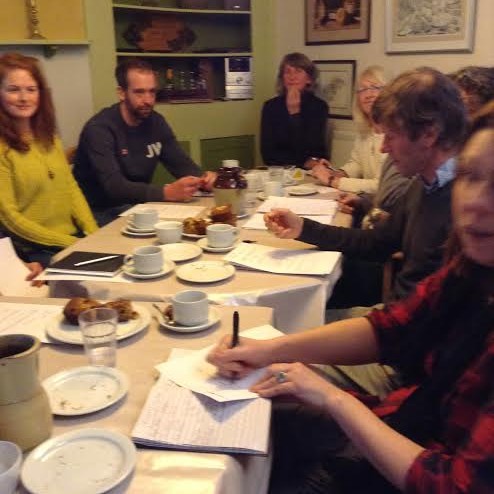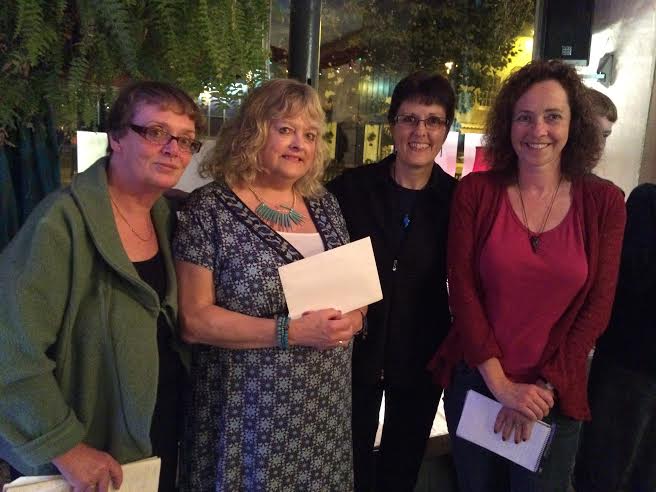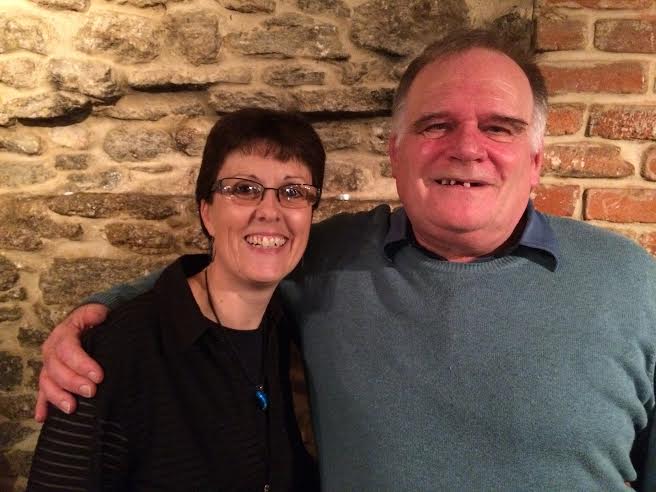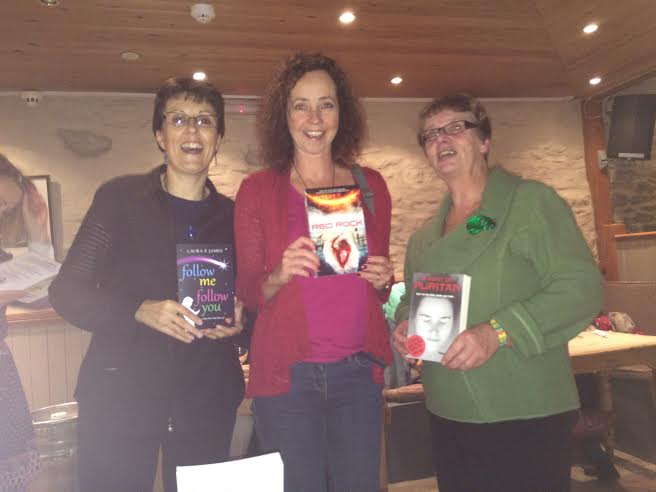One of the most pleasant ways to spend an afternoon, is to share ideas with other writers and learn one or two writing tips. On Saturday 17th January, the car ambled through the country lanes to Askerswell near Bridport, for a short story workshop. Accompanied by a rather large notebook and a trusty pen, I bumped into other like minded people as we walked up the path. The flyer for the Dorset Writers’ Network said, ‘let your imagination fly’, and that is exactly what we did. In the warmth of the cosy surroundings of Grey Cottage, our excellent tutor, Frances Colville guided us towards creating the perfect short story.
The twelve writers gathered around the table, listened, scribbled down ideas, exchanged helpful notes and read their work. There is something magical about listening to other peoples’ writing. All so different. Quite fascinating. Wonderful.
Frances is a very accomplished writer. She gave us a clear understanding into the composition of a good short story. I found her tips very helpful and thought provoking. One of the constructive ideas she presented to us, is to hot seat your chosen character. This technique is valuable for gaining further appreciation of characterisation; such as understanding his or her personality; age; relationships with others or individual motives. Either, ask yourself the questions about the person you have created, or ask someone else to ‘hot seat’ you. Both are effective tools to consider when writing a short story.This was very helpful, for gaining an extra insight into the creation of our own characters.
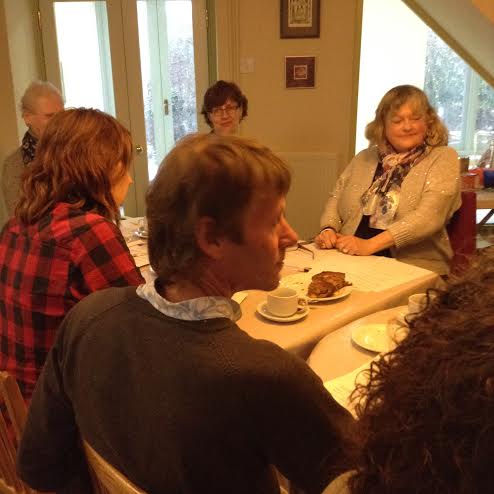 Our tutor made a number of further practical suggestions; the important use of dialogue in short stories; the inclusion of dramatic tension and how to achieve it, and the necessity for vigorous editing. Reading your story out loud is very important for getting the sense of rhythm and pace.
Our tutor made a number of further practical suggestions; the important use of dialogue in short stories; the inclusion of dramatic tension and how to achieve it, and the necessity for vigorous editing. Reading your story out loud is very important for getting the sense of rhythm and pace.
A worthwhile exercise to do at home, (which I immediately applied to my own writing), with great success, is to explore a written piece and the application of descriptive words. Are they the best ones to choose? Are you using cliché and words that are too obvious? Frances suggested, that as writers we underline each one, and think of them on an individual basis.
Four o’clock. It was the end of the session. Chairs were placed under the table. Notebooks and pens disappeared into bags. Coffee cups pushed to one side. Everyone left chatting, heads buzzing.
Frances Colville gave us lots to think about in her invaluable and absorbing session. I could have stayed for another two hours.
So now, it’s time to think of an idea! If you want to take part in the competition, create a story with a maximum of 500 words. This should be set in Dorset, have a strong sense of place and have equally strong characters. The winners will be chosen for the e-book anthology and the closing date is the 31st March.
So, let those thoughts slide on to the page and your imagination fly. Without any further hesitation get writing.


